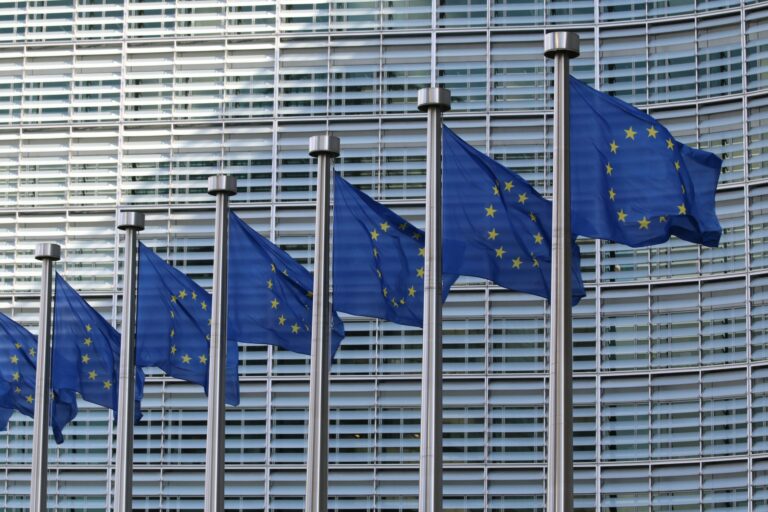The European Union is stepping up antitrust scrutiny of AI deals, starting with high-profile deals between Microsoft and OpenAI, and Google and Samsung.
Margrethe Vestager, the European Commission’s Executive Vice-President for Competition Policy, warned that AI is “developing at breakneck speed” and revealed that several preliminary investigations are underway into various AI-related market practices. Her concerns about potential anti-competitive practices stem from the maneuverings big tech companies have been making in the AI space since the emergence of ChatGPT.
The European Commission’s move highlights the European Union’s growing concerns about the potential monopoly power of tech giants in the rapidly evolving field of AI. The investigation focuses on recent deals and alliances between Microsoft and Google in the AI space. These efforts, which often involve strategic partnerships or acquisitions, have attracted regulators’ attention because they could undermine competition and innovation.
Vestager highlighted that the Commission is conducting several preliminary antitrust investigations into various practices in AI-related markets, although specific details were not disclosed.
Microsoft and OpenAI Partnership
The multi-billion dollar partnership between Microsoft and OpenAI is one of the most significant collaborations in the AI industry. Launched in 2019 and expanded over the years, the partnership includes Microsoft making significant investments in OpenAI, providing cloud computing resources through the Azure platform, and integrating OpenAI’s advanced models into Microsoft products and services.
The partnership aims to accelerate AI research and development, with notable advances such as the GPT-3 language model and the recent ChatGPT. However, the partnership has raised concerns about market power and possible barriers to entry for smaller AI companies. Vestager said in her speech that the European Commission began looking into whether the deal violated EU merger rules last year, but withdrew the deal after concluding that Microsoft had not gained control of OpenAI.
“Microsoft has invested $13 billion in Open AI over the years. But we must ensure that such collaborations do not become a cover for one partner to have dominant influence over the other,” she said, suggesting the Commission would investigate the deal and the industry more broadly in a different way. The Commission is applying EU antitrust rules that target misconduct by companies with dominant market positions.
The European Commission is requesting specific information about the Microsoft-OpenAI contract after reviewing responses to a request from major AI companies in March this year. Vestager said it aims to determine whether exclusivity clauses could harm competition in the AI market. The EU “wants to understand whether certain exclusivity clauses could harm competitors,” she said.
What’s being questioned is the partnership between Google and Samsung.
Google and Samsung’s AI-related deal has also attracted a lot of attention. The collaboration will leverage Samsung’s hardware capabilities and Google’s AI capabilities to develop innovative consumer electronics and mobile technologies. This will include integrating Google’s AI algorithms into Samsung devices to enhance features such as voice recognition, camera capabilities, and personalized user experiences.
The partnership promises to bring advanced AI-driven capabilities to a broader consumer base, but it also raises questions about competitive fairness, particularly around access to key technologies and market impact. Vestager said EU regulators had requested information “to better understand the impact of Google’s agreement with Samsung” to pre-install Gemini Nano, the smallest version of Google’s Gemini AI-based model, on some of the South Korean tech company’s devices.
What’s next?
Tech giants such as Microsoft and Google are also dominant players in the global AI space and are aggressively expanding their AI capabilities through acquisitions and partnerships, raising regulators’ growing concern about their market power and its impact on fair competition, which would have inevitably prompted EU regulatory intervention sooner or later.
In response to the EU action, Microsoft and Google reaffirmed their commitment to comply with regulatory requirements while continuing to innovate in AI technology responsibly. The companies highlighted the potential benefits of their AI initiatives, including advancements in healthcare, sustainability and other important sectors.
However, the outcome of the EU antitrust investigation could have a significant impact on how big tech companies operate in Europe’s AI market – potentially leading to regulatory measures to foster a more level playing field and ensure smaller competitors have a fair chance to compete and innovate.
(Photo: Guillaume Perigoir)
See also: Coalition of news publishers sues Microsoft and OpenAI
Want to learn more about AI and Big Data from industry leaders? Check out the AI & Big Data Expo in Amsterdam, California, and London. This comprehensive event will be held alongside other major events like BlockX, Digital Transformation Week, and Cyber Security & Cloud Expo.
Find out about upcoming enterprise technology events and webinars hosted by TechForge here.


